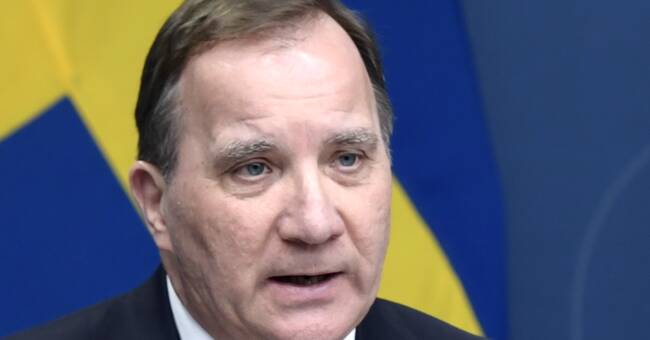The corona pandemic and covid-19 dominated once again when the EU countries' heads of state and government sat connected for a digital summit for most of Thursday.
A joint statement afterwards stated "the importance of transparency and the use of export licenses".
The latter is a hot potato, linked to the European Commission's expanded control system that will make it possible to stop vaccine exports.
The frustration over the missed vaccine deliveries from the pharmaceutical companies was clear.
"Companies must fulfill their contracts with the EU before exporting to other regions," said Commission President Ursula von der Leyen at the post - meeting press conference.
Sweden skeptical
Nevertheless, it is also stated that the new restrictions are mostly to create transparency.
Several more free trade-friendly countries - such as Sweden, Ireland and the Netherlands - are also strongly skeptical of a halt to exports.
"Companies must deliver according to agreement, the EU countries agree on that.
But the issue of restricting trade is not simple because we are dependent on each other to be able to produce vaccines ", writes Prime Minister Stefan Löfven (S) in a statement via text message after the meeting.
"It is important that the new export restrictions are not used in a way that makes vaccine production more difficult," says Löfven, who will comment further on the meeting at a press conference at 08.40 on Friday morning.
The threat of a halt in exports is not least intended as a signal to the United Kingdom in particular, in order to speed up deliveries to the EU from two British Astra Zeneca factories.
"Win-win mode"
Possibly an immediate effect can be discerned in a joint statement that the European Commission and the British government agreed on late Wednesday night.
"We are working on concrete steps to take in the short, medium and long term to create a win-win situation and increase the availability of vaccines for all our citizens," the statement said.
Stefan Löfven is still worried about the relationship between Brussels and London.
- The relationship between the UK and the EU seems to be deteriorating and both will suffer.
I'm a little worried overall, not just from the vaccination perspective, the Prime Minister said at a web conference ahead of the summit.
Knivig distribution
Another issue is the internal distribution of what the EU has ordered on behalf of the member states.
The European Commission has promised equal deliveries according to the size of the countries.
However, as countries have ordered different amounts of the various vaccines developed, deliveries have become uneven, especially for those countries that have focused on using only Astra Zeneca's vaccine - which is cheap, but has also had the biggest delivery problems.
Austria in particular is pushing for and demanding a real redistribution.
- If there is no solution to this, it can cause damage to the EU in a way that we have not seen in a long time, says Chancellor Sebastian Kurz.
To move forward, EU Member States' ambassadors are now tasked with distributing the ten million extra doses from Pfizer-Biontech that the EU has recently had access to "in a spirit of solidarity".

